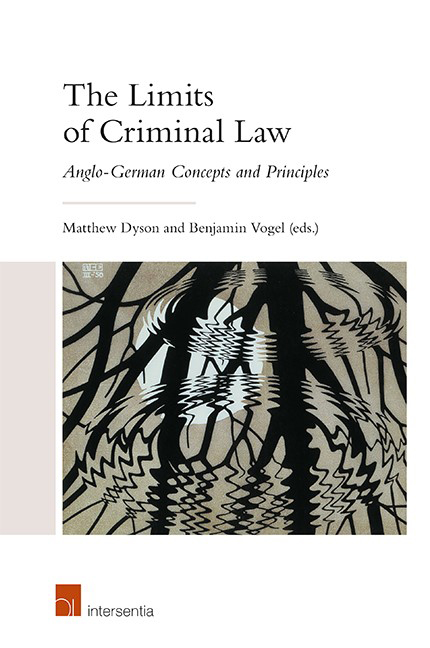Book contents
- Frontmatter
- Preface
- Contents
- List of Cases
- List of Abbreviations
- List of Contributors
- Chapter 1 Introduction
- PART I CORE PRINCIPLES OF CRIMINAL LAW
- PART II CRIME AND TORT
- PART III CRIME AND MEDICAL
- PART IV CRIME AND REGULATION
- PART V ADMINISTRATIVE SANCTIONS
- PART VI ALTERNATIVE ENFORCEMENT
- PART VII COUNTER-TERRORISM
- PART VIII CRIME AND INTELLIGENCE
- PART IX CONCLUSION
- Index
- About the Editors
Chapter 17 - State Responses to Criminal Offences in England and Wales and the Problem of Equality
Published online by Cambridge University Press: 11 February 2021
- Frontmatter
- Preface
- Contents
- List of Cases
- List of Abbreviations
- List of Contributors
- Chapter 1 Introduction
- PART I CORE PRINCIPLES OF CRIMINAL LAW
- PART II CRIME AND TORT
- PART III CRIME AND MEDICAL
- PART IV CRIME AND REGULATION
- PART V ADMINISTRATIVE SANCTIONS
- PART VI ALTERNATIVE ENFORCEMENT
- PART VII COUNTER-TERRORISM
- PART VIII CRIME AND INTELLIGENCE
- PART IX CONCLUSION
- Index
- About the Editors
Summary
Criminal law entails a substantive notion of criminal offences and a procedural notion of how the state responds to the commission (or possible commission) of offences. A fuller understanding of the criminal law and its limits thus requires more than an assessment of the behaviours that are and should be criminalised; it also requires an understanding of the criminal process and alternative means of enforcement. The very existence of such alternatives suggests an important limit on the criminal law. Enforcement via the criminal process is no longer, if it ever was, the sole means by which the state can respond to the commission of criminal offences. Alternative means of enforcement could conceivably constitute a positive limit on the criminal law: rational alternatives could allow enforcement via the criminal process to be reserved for more serious wrongs. The term ‘could’ is, of course, crucial here. In this chapter, we critically assess the alternative means by which the state can regulate criminalised behaviour.
Section 1 of the chapter provides an overview of criminal and non-criminal enforcement in England and Wales, noting the various agencies that are involved and the legal resources that are relevant to them. Section 2 undertakes a more detailed examination of two alternative means of enforcement: penalty notices for disorder and preventive orders. Focusing on the measures considered in section 2, sections 3 and 4 each engage with a normative issue underlying the use of non-criminal enforcement. Section 3 assesses whether non-criminal enforcement that does not incorporate the fair trial safeguards of criminal enforcement can be justified. To make this assessment, the section engages with both how distinctive preventive orders are from punishment, and the role of recipient consent in justifying the imposition of penalty notices for disorder. Section 4 questions the extent to which non-criminal enforcement is consistent with the principle of equality in criminal law.
OVERVIEW
We begin the section by describing the paradigmatic ‘criminal’ model of enforcement in England and Wales, and we then outline alternative types of response.
The English criminal process can be divided into three stages:
1. investigation;
2. prosecution; and
3. conviction and sentencing.
Most of English criminal law is to be found in legislation passed by Parliament, but there is no criminal code and there are still several common law offences which have never been put on a statutory footing, for example manslaughter and perverting the course of justice.
- Type
- Chapter
- Information
- The Limits of Criminal LawAnglo-German Concepts and Principles, pp. 345 - 364Publisher: IntersentiaPrint publication year: 2020



